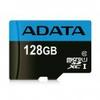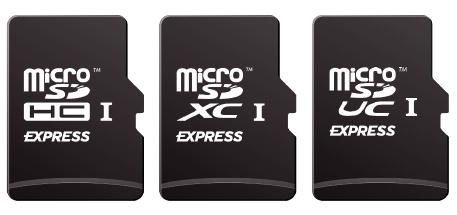The SD Association has introduced the new microSD Express standard. It is part of the pending SD 7.1 specifications. The microSD Express standard uses one-channel PCIe 3.1 and NVMe 1.3 to achieve throughputs of up to 985 MB/s.
MicroSD Express has been developed due to the increasing demand of fast memory for applications like slow motion and 8K video and for 360 degree recordings. The microSD Express cards contain a second row of pins that are utilised to bring the PCIe 3.1 and NVMe 1.3 technology to life in such a small form factor. The SD Association claims that the microSD Express cards are basically equivalent to a removable SSD card in smartphones and other compatible devices. In addition to a significantly faster data transfer speed, the microSD Express video cards are also claimed to consume less energy, besides serving as an ideal solution for high-intensity tasks such as capturing super slow motion videos, RAW burst mode output and 8K video playback.
The cards are backwards compatible and can lift on further developers of PCIe and NVMe. This means that future microSD Express cards could use, the for this year scheduled, fifth generation PCIe that allows throughputs of up to 4 GB/s
The new standard also ensures a decrease in latency and lower energy consumption.
SD Association announces microSD Express standard


